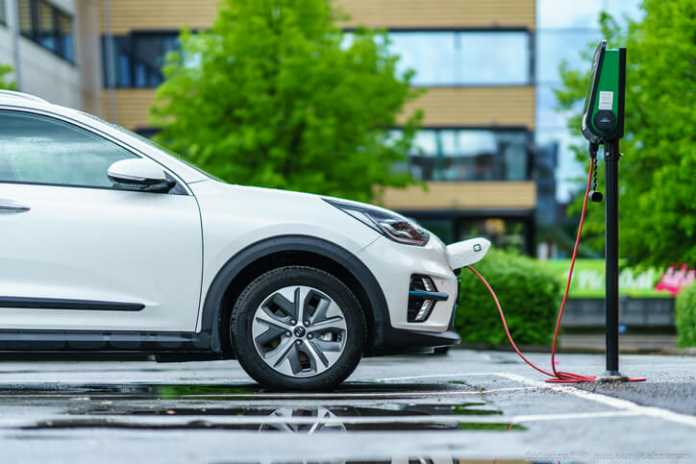Electric cars are most certainly the vehicles of the future, and they are becoming more and more popular around the world today. Not only does driving an electric car mean that you can be kinder to the environment, but they’re also often much cheaper to run and maintain as there’s no need to fill the tank with petrol or diesel, or deal with the engine maintenance tasks that you would need to perform on a traditional, fuel-powered car. If you are thinking about getting a new car, there are lots of reasons why you might be thinking about an EV. Some of the pros and cons to consider before you get an electric car include:
Pros
There are lots of advantages to driving an electric car. These include:
Zero Emissions
Since electric cars are powered by a large battery and driven by geared electric motors, there is no engine and no exhaust emissions. Electric cars do not require an exhaust at all, meaning that you can drive to wherever you need to be with peace of mind that your car is much kinder to the environment and does not produce any emissions at all. However, it’s worth bearing in mind that using an electric car is not completely free of emissions, since you will need to use the National Grid when charging your EV, which transports electricity from nuclear, coal and gas sources along with solar power and wind farms.
Fuel Savings
One of the main reasons why more and more people are considering electric car leasing is the huge savings that they can make on fuel. ElectriX has more information on the best electric car lease deals, and you can save even further money without the requirement to fill up your tank. Not having to fill up with fuel is one of the main appeals when it comes to EV lease deals and ownership. Since you can charge your car easily from home, this also allows you to save time since there’s no need to remember to head to the petrol station to fill up before you leave for work in the morning. With the average price of fuel in the UK on the rise, especially in light of the recent tanker driver shortage that led to fuel not being available at many stations, getting an EV lease can help you save a significant amount of money each year.
Incentives
Electric cars might be more expensive to buy or lease compared to their fuel-powered counterparts, especially if you are looking for a brand-new vehicle. However, there are lots of incentives to make it easier financially for you to get your hands on an electric car, including the government’s plug-in car grant which gives you £2,500 off the price of a brand new electric vehicles. The government also offers £500 towards the cost of having an EV charging port installed in your home. However, the good news is that second-hand electric cars are just as good as brand new, and they drop in price in just the same way as traditional vehicles. With electric cars now becoming more and more commonplace, you can save further money when buying second-hand. Along with this, electric cars do not require you to pay any tax on them due to being zero-emissions vehicles.
Save on Maintenance
Another top reason to consider buying or leasing an electric car is that they do not need all the service items that you’d expect for a traditional car such as oil and filter changes, which makes them much easier and cheaper to maintain as a result. Electric vehicles have much fewer moving parts compared to cars that have a traditional fuel engine. However, bear in mind that battery issues can be expensive to repair, so it’s a wise idea to choose a car with a battery that is covered with an extended warranty.
Cons
While there are undoubtedly many benefits of driving an electric car, there are also some disadvantages to consider before deciding if this is the right type of vehicle for you. Some of the main cons of electric cars are:
Charging Points
As of 2021, there are still less than fifteen thousand active charging locations for electric cars in the UK, with over 30% of these being in Greater London, leaving the rest of the country at a disadvantage when it comes to charging their car. While finding a charging point might not be a big issue if you are in or close to a major UK city, it can be a problem for those who live in rural areas since there is still a lot of work to be done to improve charging infrastructure in the country and make it more accessible to electric car drivers everywhere.
Charging Time
One major disadvantage of owning an electric car is that while filling up with fuel takes a couple of minutes at most, charging your car is nowhere near as quick. The time that an EV will take to charge depends on the make and model of the car and how powerful the charger is. Tesla, for example, has superchargers that can give your car full power in thirty minutes, which might sound fast but is still much slower than filling up. On the other hand, more affordable electric car options like the Nissan Leaf 30kWh will take around four hours to charge. The good news, however, is that as electric cars become more popular, there has also been an increase in rapid charging solutions.
Lower Range
Early electric cars could cover much less distance on a full charge compared to a traditional fuel-powered car on a full tank. Most electric cars could not do any more than one hundred miles on a full charge, which wasn’t enough for many people. However, if you’re buying a newer electric car, this shouldn’t be an issue, since most are equipped to travel up to around two hundred miles on a full charge, which is enough for most people. However, you might struggle if you tend to make long journeys on a frequent basis.
Purchase Price
Even with incentives and deals on offer, getting an electric car can be much more expensive initially compared to buying a petrol or diesel car. However, it’s worth bearing in mind that, over time, your electric car could easily start to pay for itself with the significant amount of money that you can save on filling up with fuel and fewer maintenance charges to pay, along with having no vehicle tax charges. However, electric cars can cost tens of thousands of pounds, which will still take a long time to make back even with all the savings you will make as a result. Thankfully, electric vehicle leasing deals are making it easier for drivers to spread the cost of getting an electric vehicle, with options that allow you to trade in your EV for a newer model once the lease period is up.
There’s no denying that electric cars are changing the way that we think about driving. Despite being more expensive and the fact that charging does take longer compared to filling a tank with fuel, you can’t argue with the fact that electric cars are cheaper to run, easier to maintain, kinder to the environment, and will help you save money over time.
Furthermore, payment options such as salary sacrifice cars, actually give you better savings when choosing a greener vehicle.




































































